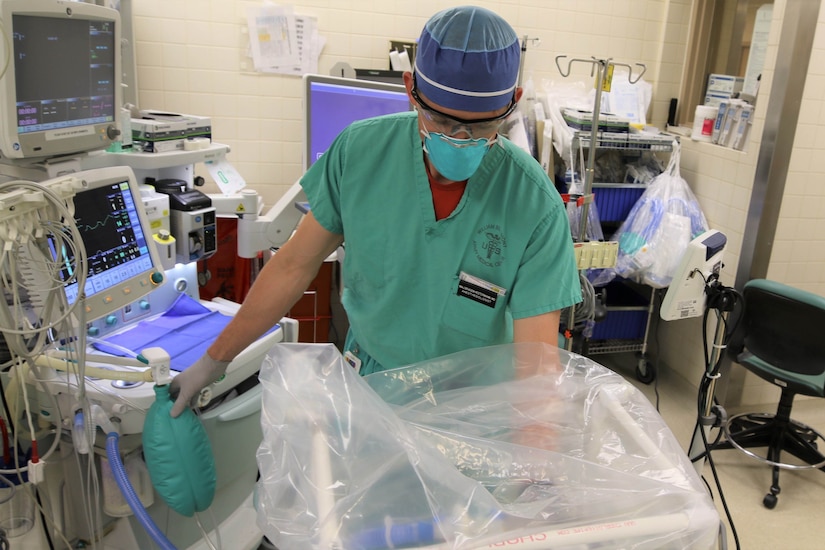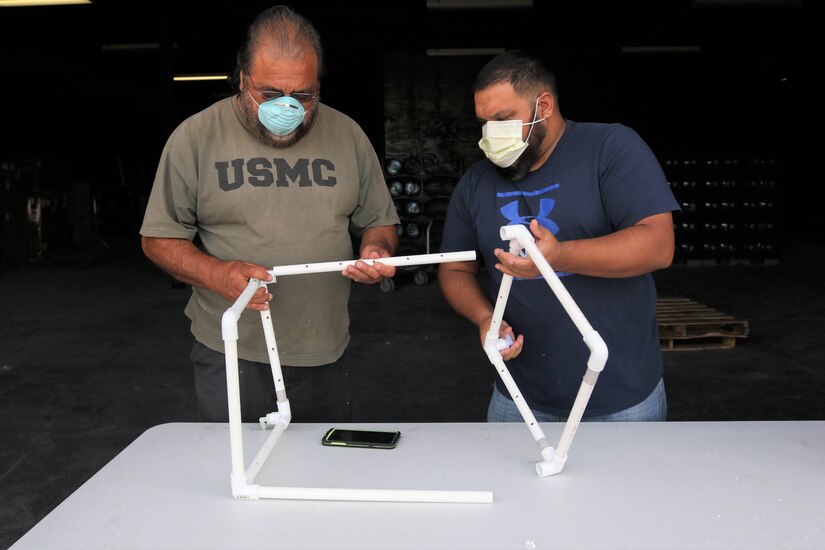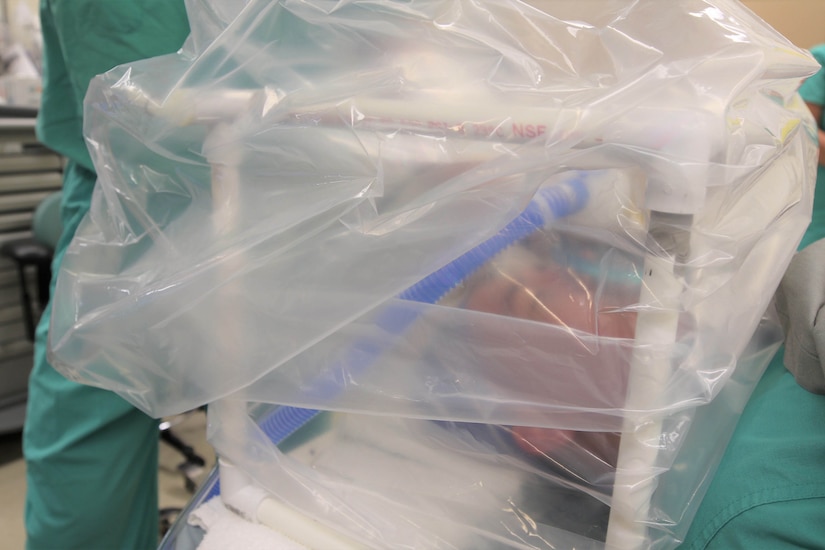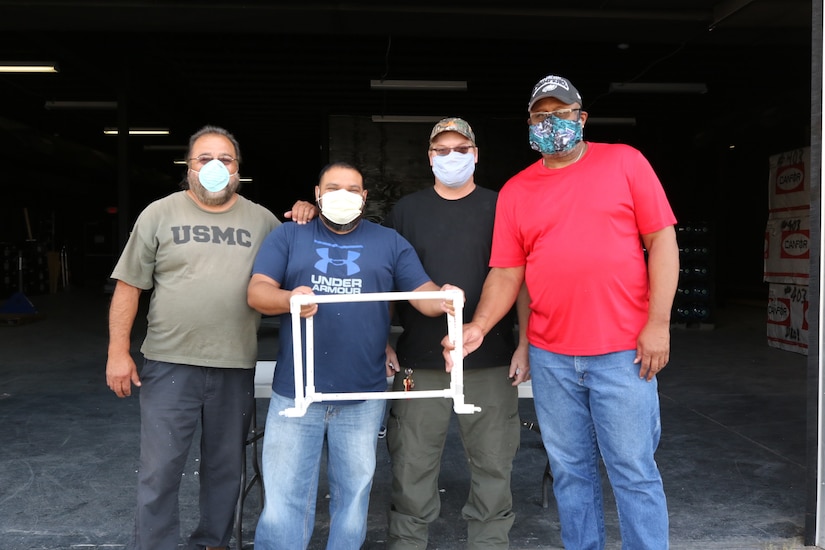U.S. Army Medical Command promulgated the COVID-19 Airway Management Isolation Chamber. It's used to protect medical care providers from exposure while treating COVID-19 patients.
The CAMIC is an inexpensive barrier device constructed by draping clear plastic sheeting over a box-like frame made of common PVC piping. The barrier is then placed over the patient's head to reduce the risk of spreading COVID-19 during treatment. This barrier protects health care workers from aerosolized droplets by capturing and removing viral particles emitted from the patient. Holes in the piping device release oxygen flowing through it from one end, which is then sucked out by a vacuum on the other end.

With an emergency use authorization from the U.S. Food and Drug Administration, the hospital contacted Fort Bliss for support in constructing 40 CAMICs. A few volunteers from Fort Bliss Range Control stepped forward to do the job. They volunteered to construct the devices, procured all the supplies needed and began working on the construction immediately.
Tim Ahlstrom, Robert Serrano, Kevin Waller and Raul Martinez, range control maintenance workers from the Fort Bliss Directorate of Plans Training Mobilization and Security, came in for a few weeks and built the CAMICs using development instructions from Army Medical Command.
"When they explained to me what it was going to be used for, I said definitely, we will do it," said Serrano, a maintenance mechanics. "We have to do what we can to help during these times. It is a small part on our part, but still it's something that is going to be a big help to the people who get infected."
Doctors and nurses at the hospital are thankful that the items were constructed in such a quick manner and are at their disposal when treating someone with COVID-19.

"The construction of the CAMIC devices by our Team Bliss colleagues is a great example of the phenomenal work by the entire Fort Bliss community in response to the COVID-19 pandemic" said Army Col. (Dr.) Michael Oshiki, the commander of William Beaumont Army Medical Center. "These devices will provide a superb degree of protection to our staff and our patients, and on behalf of WBAMC, Command Sgt. Maj. [Janell] Ray and I would like to extend our heartfelt thanks to all those who contributed to getting these devices made."
Army Lt. Col. (Dr.) Eric Weber, the chief medical officer of William Beaumont Army Medical Center, explains that the CAMIC can be the solution to a worldwide problem.
"The problem is we have a disease that is dangerous and can spread easily when aerosolized," Weber said. "Where you would normally treat a patient with this disease in an isolation or negative pressure room, this helps. There are not enough negative pressure rooms in hospitals, and this can help treat patients in regular rooms."
In the emergency room, a patient with COVID-19 may need to be intubated, and anyone within 6 feet of that patient is at high risk for contracting it themselves.

"The CAMIC is the perfect solution. You can put anyone on a [Bilevel Positive Airway Pressure device] or any kind of high-flow nasal device and completely wall it off, and prevent them from getting intubated and help them get better and not spread the disease to everybody else," Weber said.
All 40 CAMICs have been fielded in different parts of the hospital, to be used on patients when needed.
"The CAMIC is a small piece of what we are doing to treat patients with COVID," Weber said. "We have an amazing staff, and we are prepared. I think patients can feel safe and comfortable coming here. We are ready should a large volume of patients come."
As a doctor himself, Weber said, he does not hesitate to give the local population his advice.
"As the chief medical officer here, my advice to everybody is to wear a mask," Weber said. "There is a tremendous amount of data that wearing a mask is the absolute best thing we can do. It's not 'Wear a mask for yourself,' it's for the people around you. You may do great if you are young, but you may have other people who you may interact with that may not do so well. A mask will help slow the spread until we can get a vaccine."

Samuel Pearson, the logistics manager for the range branch, agrees with Weber. Aside from helping in acquiring the materials for the range control team to make them, he feels people should know that they may end up under the CAMIC themselves.
"I want people to take it seriously, you know," Pearson said. "Wear the mask, wash your hands. We get emails on people telling us what to do, what not to do, and I just want people to adhere to what our leaders are telling us so we can be safe."
(Amabilia Payen is assigned to the William Beaumont Army Medical Center.)








No comments:
Post a Comment